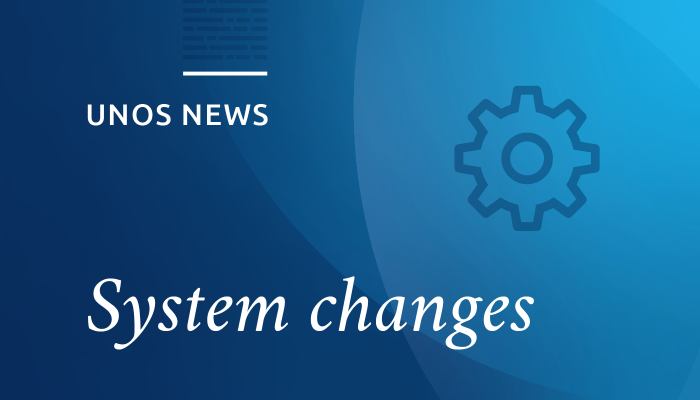Audience:
- UNet users who enter data for pediatric lung candidates
- All OPO staff who use UNet
Please share this notice with anyone in your organization who would benefit from this information.
Implementation date: March 30, 2017
At-a-glance:
In December 2015, the OPTN/UNOS Board of Directors approved policy changes establishing criteria for intended blood type incompatible matching for pediatric lung candidates registered before two-years old as well as broader sharing for pediatric lungs. The policy allows candidates registered before turning two-years old, to receive lungs from a donor with an incompatible blood type, if they meet eligibility requirements stated in policy.
We changed the lung allocation algorithm and retired the Adolescent Donor Lung Allocation (12-17 years of age). The following two allocations are now in effect:
- Pediatric Donor Lung Allocation (lung donors less than 18 years old)
- Adult Donor Lung Allocation (donors 18 years or older)
Note: Approved policy denotes the changes specific to pediatric lung policy, but programming applies to lung and heart-lung candidates. Read policy notice for complete details.
What has changed in the Waitlist application?
If you register your candidate as willing to receive an intended blood type incompatible offer, your program will need to submit additional titer data. We added new fields to the lung and heart-lung candidate records to capture the new eligibility requirements.
The eligibility requirements for candidates to receive incompatible lung offers differ depending on their age.
1. Less than one-year-old when the match is run:
- Candidate must be priority 1
- Transplant program must have submitted isohemagglutinin titer information for A or B blood type antigens through UNet within the last 30 days.
2. At least one-year-old when the match is run and was registered in Waitlist before turning two:
- Candidate must be priority 1
- Transplant program must have submitted through UNet isohemagglutinin titers less than or equal to 1:16 for A or B blood type antigens from a blood sample they collected within the last 30 days. The candidate must not have received treatments that may have reduced isohemagglutinin titers to 1:16 or less within 30 days of when the blood sample was collected.
Note: For heart-lung candidates, the candidate must be a status 1A/1B for heart and priority 1 for lung.
Questions?
If you have questions about these changes, please contact the UNet Help Desk at (800) 978-4334.
For questions about policy, please contact your regional administrator at 804-782-4800.

